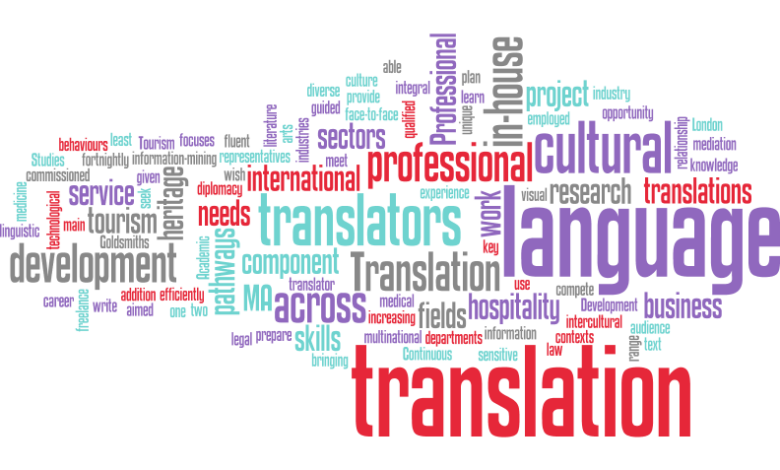Translation Agency

Prepared by the researche : Abrar Samir Ghanem – Independent Researcher, Jerusalem, Palestine
Democratic Arabic Center
Arabic journal for Translation studies : Ninth Issue – October 2024
A Periodical International Journal published by the “Democratic Arab Center” Germany – Berlin
:To download the pdf version of the research papers, please visit the following link
Abstract
During the last decades, and particularly after the beginning of the 21st century, sociological approaches in translation studies have tackled the attention of both scholars and translators. Translation scholars have become more interested in the roles of translators and mediators in the field of Translation Studies, due to the cultural influence translators play. Therefore, the concept of ‘Agency’ has been largely spotted on, to elaborate more on the descriptive theoretical approaches that make the business; of translation, and audiences more ‘agent-aware’ on one hand, and to make translators and mediators more visible as social actors on the other hand. The business field related to translation emphasised more on the role of Translation Agency as the ‘House’ where translation is produced; it is the organisation which provides people with written and spoken translation services in different languages. Agency is the institution or place that is eager to embraces translation commissioner(s), translation editor(s), translation publisher(s), translator(s), and translation utilities like, computers…etc. under one structure. In other words, agency is a multi-person entity that focuses on how to frame the translation services that aim either on influencing a wide range of audiences, or on providing services that meet clients’ needs. Therefore, translation has become a huge business that includes sales, marketing, management, in addition to other sections and divisions that are related to this industry.
Introduction
In general, Knowledge is the sum of massive ideas, realisations, experiments, concepts, theories, methods, and strategies that form a series of sciences. When knowledge is expanded by being under more research and study; sciences become more branched out and divided, producing thus plenty of independent separated branches and divisions that combine new created or adopted concepts; like, in the case of this article, the development of Translation as a science and the adoption of the concept of Translation Agency. The concept of Translation Agency appeared a couple of decades ago, with the emergence of the concept of ‘Translatorial Action’, and almost a decade after the emergence of the concept of ‘Polysystem Theory’. Nonetheless, there had been a change in the field of Translation Studies between the 1950s and 1960s, this change focused on the linguistic approaches of translation, and emphasised on what happens in texts. While the 1950s and 1960s did not focus on what happens to translators; and Translation was viewed as an individual performance then, rather than as a collective one. This means that ‘Agency’ as an independent concept was not explored in the 1950s and 1960s. However, functionalist approaches slightly viewed the concept in the 1970s and 1980s. In particular, with the work of Holz-Mänttäri, ‘translatorial action’. Translation according to Holz-Mänttäri is not about translating words, sentences, or texts, but translation is more about communicating the function of the text within the target text culture, by several players; the initiator, the commissioner, the source text producer, the target text producer, the target text user, and the target text receiver. Hence, Translation Action views the cultural function of the Agency. Whereas the Polysystem Theory views translation as a collective performance and not as an individual effort. In other words, the concept ‘Agency’ in the field of Translation Studies has its roots with the Polysystem theory; that emphasised the role of translation norms.
Beyond that, and with the development of ‘Postcolonial Studies’ in the field of Translation, the concept of Agency had flourished and had been asserted on with regard to power relations and cross-cultural relations. Hence, the term ‘Agency’ has become more complex than before in the field of Translation Studies; due to the concepts of power relations, historicity, and the rhetoric of humanism. In this regard, Homi Bhabha marked questions related to identity and belonging in the process of cultural translation. Homi Bhabha created the term ‘third space’ that seeks to study issues related to “those who see the translator as a neutral mediator” (Munday 2016: 235). The reason behind the complexity of the process of translation in times of conflicts, goes back to nature of “the discourse of colonial power” that can be “complex and sometimes camouflaged” (Munday 2016: 212). However, for Homi Bhabha, translators can intervene with the discourse of the colonised, and weaken its authority by creating ‘cultural hybridity.’ Bhabha’s concept of ‘hybridity’ shows the intrusion of the colonised culture with that of the conquered nation, and consequently demands to rethink of cross-cultural relations. A question may arise here concerning the development of the concept of ‘agency’; did the development of the concept of translation agency stop at the level of power relations?
Agency in the Sociological and Digital Age
The answer is ‘No’. With the emergence and development of Sociological Approaches; recent ideas have been adopted to theorise the social nature of translation practices in the field by questioning, explaining, and analysing. Sociological approaches investigate, among other issues; the relation between action and place in the process of translation. In other words, ‘agency’ from a sociological point of view, is the interaction between the place where translation services are provided, and the agents who provide the services. Hence, ‘Agents’; translators, are expected to be able to transfer communication professionally, considering the culture of the target audiences. An agent here, is someone who is involved in the process of cultural exchange; he is someone who provides an understandable written/spoken document/utterance for the target audience, in a manner that is acceptable in the target culture. In relation to this, Kinnunen and Koskinen (2010) define agency as the “willingness and ability to act” (Tuija Kinnunen and Kaisa Koskinen 2010: 6).
The concept of agency had not been discussed explicitly in the systematic theories of the 1990s and 2000s; since Descriptive Translation Studies focused on the product, function, and process more than on agents. This produced the need to view ‘Agency’ in a more socialised context, especially after the complex post-colonial studies. In social sciences, agency is commonly discussed in connection with structure. In other words, understanding agents is related to the understanding of the structures they are in, and vice versa. Agency in sociology, is viewed by the French sociologist Pierre Bourdieu through his concept of habitus. Bourdieu suggested that habitus consists of hexis (posture and accent) and abstract mental habits (perception, classification, appreciation, feeling, and action). These mental habits allow humans to find new solutions related to new situations they find themselves in, based on their past experiences. Bourdieu’s theory helps us understand how habitus is shaped by structural position and generates action. The ‘habitus’ theory titles the “balance more towards agents” rather than the rigid titling towards structures (Tuija Kinnunen and Kaisa Koskinen 2010: 8). It is an explanation by Bourdieu that attempts to address the sociological issues related to agency or structure. Issues related to agency on this matter, are normally explained by observing and studying the nature of ‘gate-keepers’. The term ‘gate-keepers’ is a “Bourdieu’s term” (Munday 2016: 240); the term is used to refer to anyone involved in the process of translation; that could be a translator, an editor, and/or a commissioner.
In the digital age, translation is a major massive industry, (especially the software industry), that includes advancement of services, and growth of sales, marketing, authoring legal advices, and management. On this point, Munday (2016) summarises the idea behind the creation of (GILT); that is the acronym that stands for Globalization, Internationalization, Localization, and Translation. Globalization is “the organization of translation industry (management, marketing, consumer care)” (Munday 2016: 288), that ensure the international function of any digital product (Internationalization), and the culturally and linguistically appropriateness of any product in the target locale (Localization).
An Agent
Juan Sager defines an agent as a person who stands in an “intermediary position”; beginning with the translator and ending with the ultimate user of the produced translation (Juan Sager 1994: 321).
Milton & Bandia (2009) defines an agent of translation as “any entity (a person, an institution, or even a journal) involved in a process of cultural innovation and exchange” (Milton & Bandia 2009, as cited in Hélène Buzelin 2011: 1). In other words, an agent is someone who plays a role in the process of cultural exchange, that could be a translator, an editor, a commissioner, and a client.
Simeoni dives deeper to define an agent, he says that an agent is/could be “the subject, but socialized” (Simeoni 1995: 452). Thence, an agent in translation for Simeoni could be a translator, an interpreter, or a pen. In the digital age, from Simeoni’s point of view, an agent could be a computer, a data entry clerk, a data entry keyer, a typist, or a transcriptionist.
The Role of Agencies and Agents
The aim of the collective role of an agency and agents is to provide translation services to clients and audiences that meet the cultural expectations of the client and the target culture. In other words, agencies and agents do:
- Provide a complete service to make written/spoken documents understandable in the target language, and acceptable in the target culture; conveying the original meanings and tones, and avoiding miscommunication or cultural incompetency.
- Research industry-specific terminology.
- Run marketing campaigns and projects.
- Play an important role in “promoting peace”, or in “fueling conflicts” (Mona Baker 2005: 4).
- Provide accurate and professional translation services by providing the translation commission to translators, or as Nord (1991) terms it ‘translation brief’; that gives instructions to translators on how to achieve the intended purpose and function of the target text. Briefs contain information related to the target-text addressees, the prospective time and place of text reception, the medium over which the text will be transmitted, and the motive behind the production or reception of the text (Munday 2016: 132).
Freelancing
A translation agency provides several translation services; meaning that an agency of translation is somehow an expanded freelancer account that can hire or fire agents. Hence, an agency of translation needs agents who are specialised in the diverse field divisions, and who have mastered the precise field terminology, text typologies and linguistic conventions.
On the other hand, an individual freelancer is an agent/someone who has the ability to work in more than one division of the field, and who has mastered the precise field terminologies, text typologies and linguistic conventions.
Translation agencies have the choice of whether to hire specialised agents, or freelancers, and/or both! Clients hiring an agency, are hiring an agent of that agency who has the ability to communicate the source function into the target culture, and who is paid off later by the contracts made by the agency. Clients can communicate with the agency or with the agent performing their services.
However, a client hiring an individual freelancer means that the client will have to communicate directly with the individual freelancer about the translation service he requests. Individual freelancers set the client payment, and this payment goes directly to him; to the individual freelancer.
A question may arise concerning of whether a client should hire an agency or an individual freelancer?
An Agency or an Individual Freelancer
Speaking using two different languages or more does not qualify anyone to be a translator, even if the speaker is a native one and speaks a second language fluently. Translating between two languages is a discipline that requires linguistic skills, communicative skills, knowledge of cultural differences, and awareness of the ‘Translation’ as both a field of study and as an industry.
The difference between professional and non-professional translators on one hand, and high-quality or low-quality translations on the other hand, lies in the usage of accurate terminology, correct usage of field jargon, and the correct grammatical writing style.
Hence, choosing an agency over an individual freelancer is much safer than vice versa. First, agencies choose their agents carefully, and make sure their agents have the required qualities and abilities required in the industry. Second, translation services provided by agencies are usually reviewed by at least two members, commissioner and editor, before they provide the services to their clients. Third, agencies work within very short timeframes; since they embody the major qualified place for the industry.
Summary
The concept of Agency has emerged to emphasise the idea of the collective communicative effort translation industry is responsible and capable of, more than to emphasise the idea of the role of translation as an individual mean of communication.
In the past, translation theories viewed issues related to the source text and culture only. But later on, translation theories viewed issues related to both the source and the target texts and cultures, especially the issues of the function of both source and target texts.
However, with the gradual development of the field of translation studies, the emphasise on translators (agents) and structures (agencies), has been further studied. Developments of the field included the adoption of recent concepts like structure, service, role, cross-cultural relations, power relations, and function.
Bibliography List
- Baker, M. (2005a). Narratives in/and of Translation. SKASE Journal of Translation and Interpretation. 1(1), 4-13.
- Buzelin, H. (2011). Handbook of Translation Studies Online, 2, 6-12.
- Kinnunen, T., & Koskinen, K. (2010). Translators’ agency. Tampere University Press.
- Munday, J. (2016). Introducing Translation Studies, Routledge.
- Sager, J. C. (1994). Language engineering and translation: consequences of automation. Amsterdam: John Benjamins.
- Simeoni, D. (1995). Translating and studying translation: The view from the agent. Meta, 40(3), 445-460.




